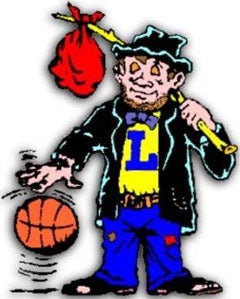In past times, joining the Hobo Club meant packing up your very small amount of belongings and either walking or jumping on a freight train to go find work. At
Laurel Hill (Fla.), joining the Hobo Club means you are giving some of your money to help support prep sports.
At Laurel Hill they are the Hoboes, the only ones in the country, and they work harder than the stereotype may tell.

Photo courtesy of Okaloosa County Schools
The dictionary definition of hoboes is a migratory worker, and other websites make sure to let you know that hoboes are hard-working people. They are migratory, so it's hard to find permanent work, but they are always looking to work.
Laurel Hill, a small community on the Florida Panhandle just a few miles south of Alabama, has embraced the Hoboes nickname. So much so, that the town hosts a hobo festival every year on the second Saturday of October.
It is safe to say that when Laurel Hill teams venture out for road games, they more than live up to their Hoboes mascot name.
So where did the mascot name come from? That isn't exactly spelled out online, but most indicators point to the railroad as the obvious choice. After all, hoboes favored jumping onto trains back in the day.
Laurel Hill started as a railroad town, according to
a piece by Mark Curenton. The Florida Panhandle was a timber hotbed long ago and the railroad enabled companies to send their cuttings to saw mills. Undoubtedly, there had to have been a few hoboes who hitched free rides.
The word "hobo" gets a much more negative connotation than it really means these days. We like these Hoboes, and we appreciate their work ethic on the pitch, the floor and the field.
